The Task
Students work in groups to try to get a set of 8 multiple choice questions 100% correct in 6 attempts or less. With each attempt, feedback is provided in very specific ways on a "MCwordle" scorecard. To get a green, they have to get all of the questions in a grouping correct and the groupings change with each attempt as they work towards getting a perfect score.
Timing
This task works best if groups are constrained on their time so you should figure out a reasonable timing based on what they are preparing for. For example, the IB Physics paper 1 is 30 multiple choice questions in 45 minutes so the 1.5 minute per question average means that I give them 12 minutes to answer the 8 questions for their first attempt.
For subsequent rounds, I shorten this to around 2 minutes because they just need time to revisit the problems and decide how to update their answers. It also works to make the later rounds more free flowing without any timing at all so groups decide when they are ready to lock in their next attempt. Feedback
When I've run this in my classroom, I just circulated the room after each round or after groups were ready with their next attempt. With a green and red colored pencil, crayon, or marker, shade in the shapes with the appropriate color. There is probably a way to make this digital and automated but I kind of liked the interactions that I had with the groups in these moments and it really makes them lock in each attempt before getting the feedback.
I made a couple of edits to this scorecard since my first iteration of this activity shown in the photo at the top of this post.
The Goal
Ultimately my goal for this task is to have students think deeply and practice strategizing about multiple choice-style questions. With a group, they have an opportunity to share ideas and hear from others about different approaches. When trying to interpret the feedback and agree on a new set of answers for their next attempt, they get to assess their confidence and decide as a group which answers (if any) they want to change before they "lock in" for the next round.
I have been really pleased with how this game has added an element of fun and intrigue to a task that was starting to get a little tired and repetitive. I also noticed skills improving from round to round as we played through this more than once. It was pretty cool to see students naturally developing the test taking strategies that would have tried to encourage anyway ;) Variations
This idea is open for a lot of variation to best fit the content and students. I would love to hear ways that others have tried and I'll share them out below :)
Providing Extra Hints
One of the challenges that I have found with the feedback style is that it is possible for a group to get just the right problems incorrect so that their card was all red every time. This can be pretty frustrating for students because it sends the message that they "don't know anything" even though they are sometimes getting most of them correct. To prevent a feeling of hopelessness I would sometimes provide hints in a couple of different ways
Files
Here are downloadable score cards for the MCwordle activity. These are pretty simple in their layout but it would be easy to modify the editable versions to include a spot for students' names or other information. There is also a version that can be printed double-sided so groups that finish early can move on to the next challenge.
Here are some of the challenges that I put together for an end of the year IB Physics review
Kevin McChesney (@TigerPhysics) has also compiled some question sets that can be used for AP Physics
Comments
|
Joe CossetteFather, Physics Teacher, Knowles Fellow, Friend, Techie, and Musician Blog Posts |
||||||||||||||||||||||||||||||||||||||||||||||||||||||||||||||||||
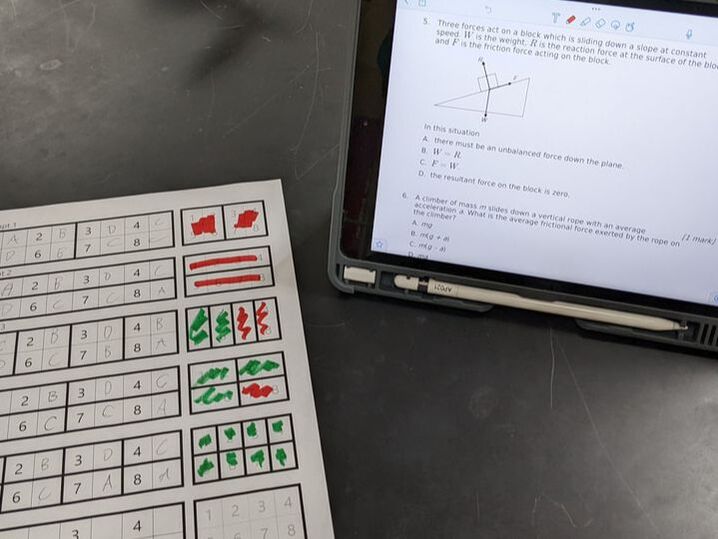
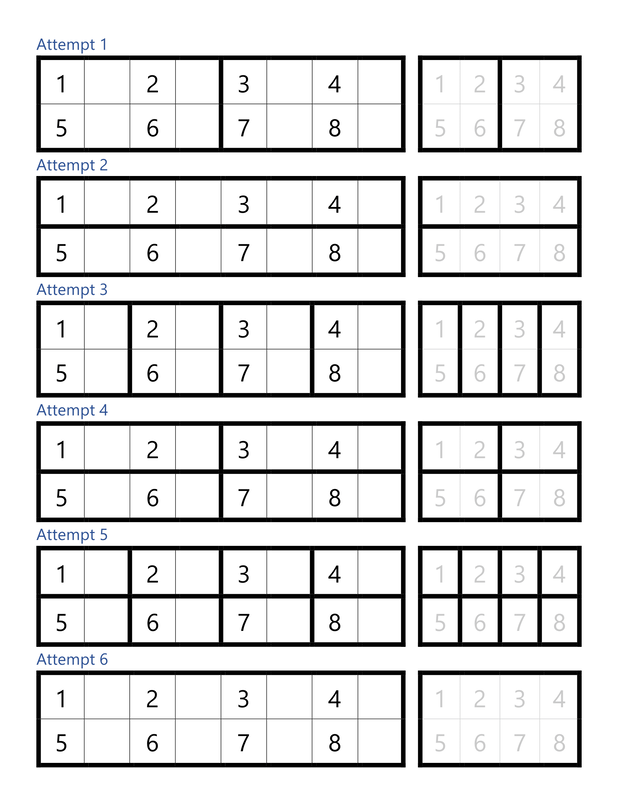
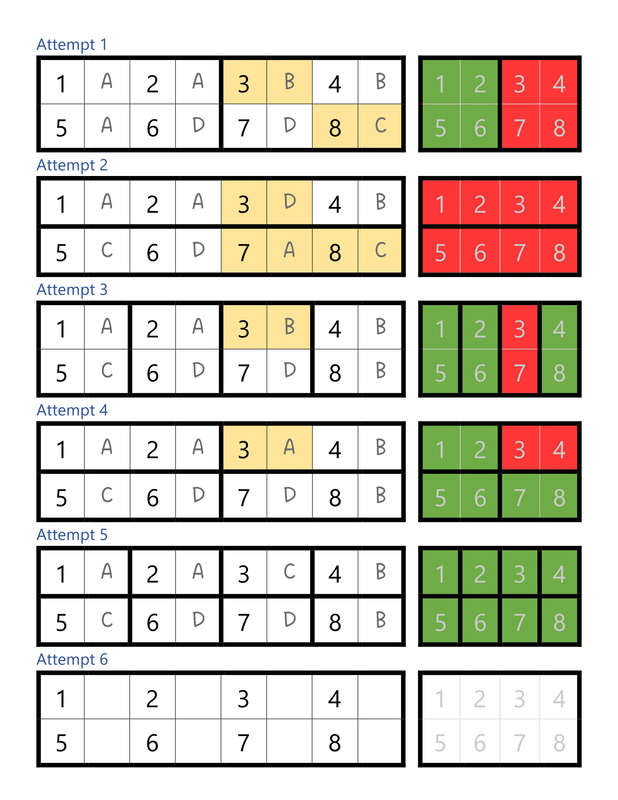
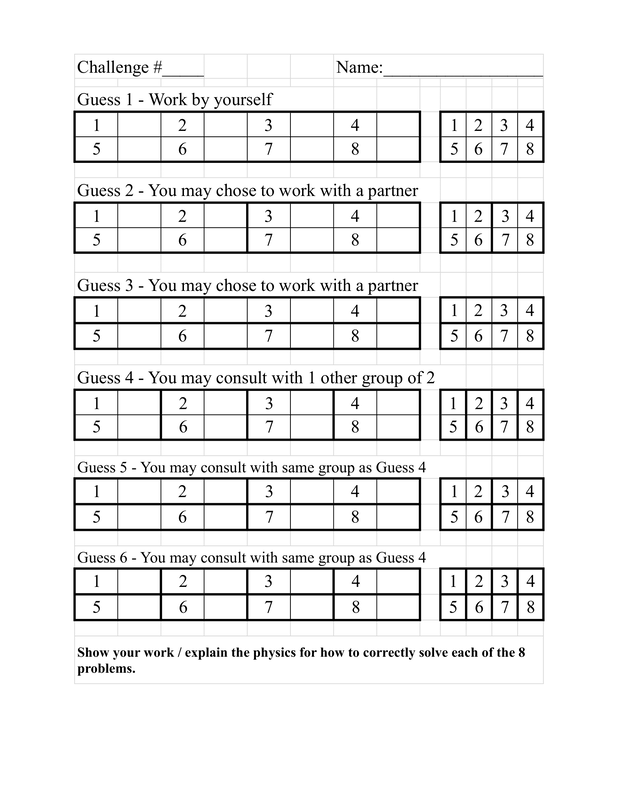
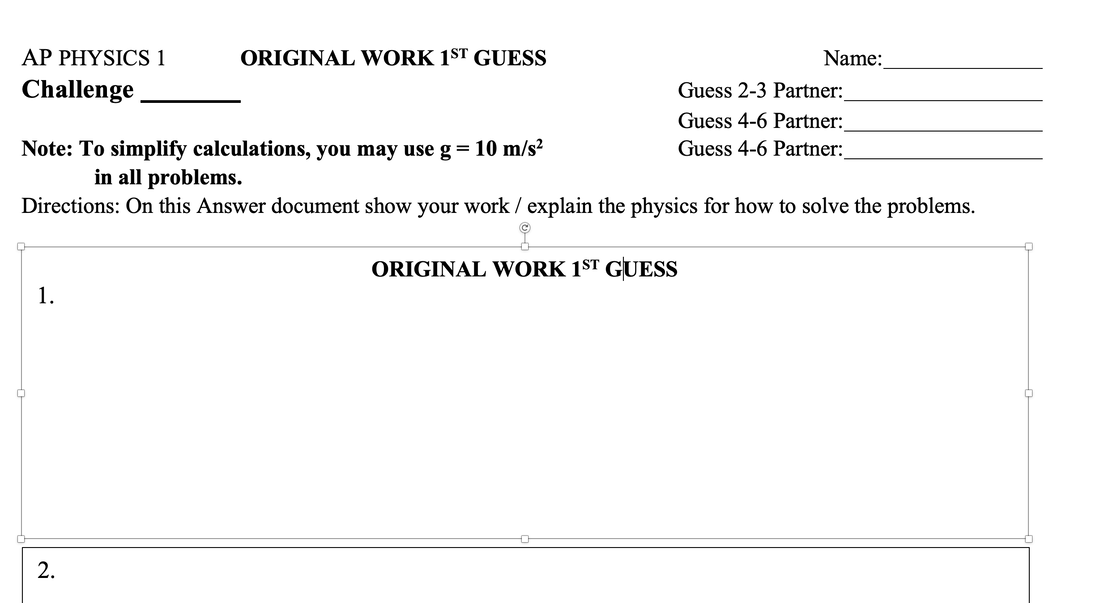
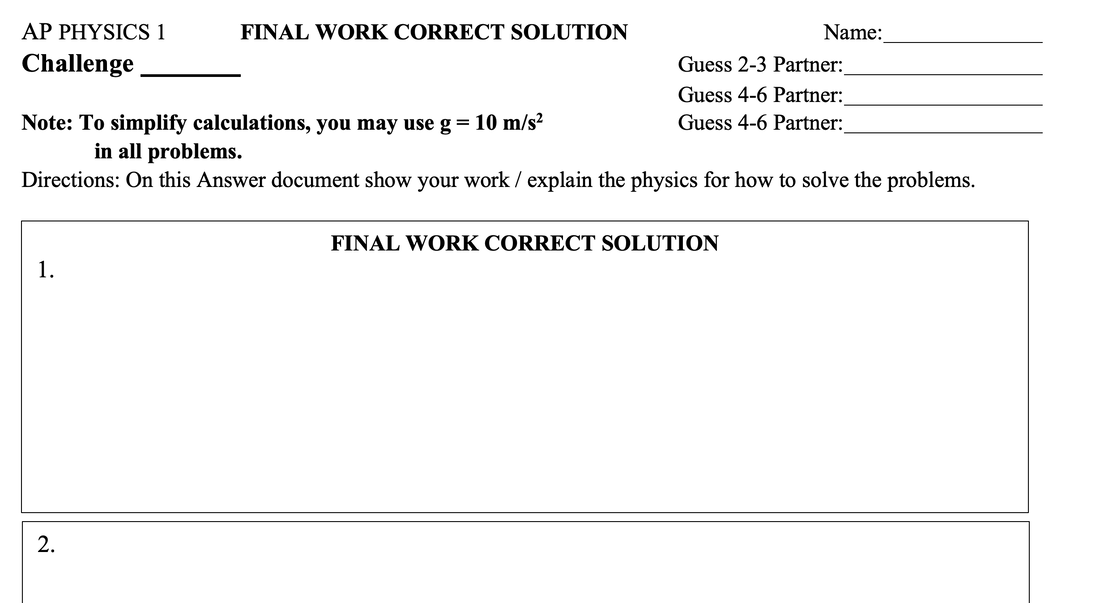
 RSS Feed
RSS Feed

